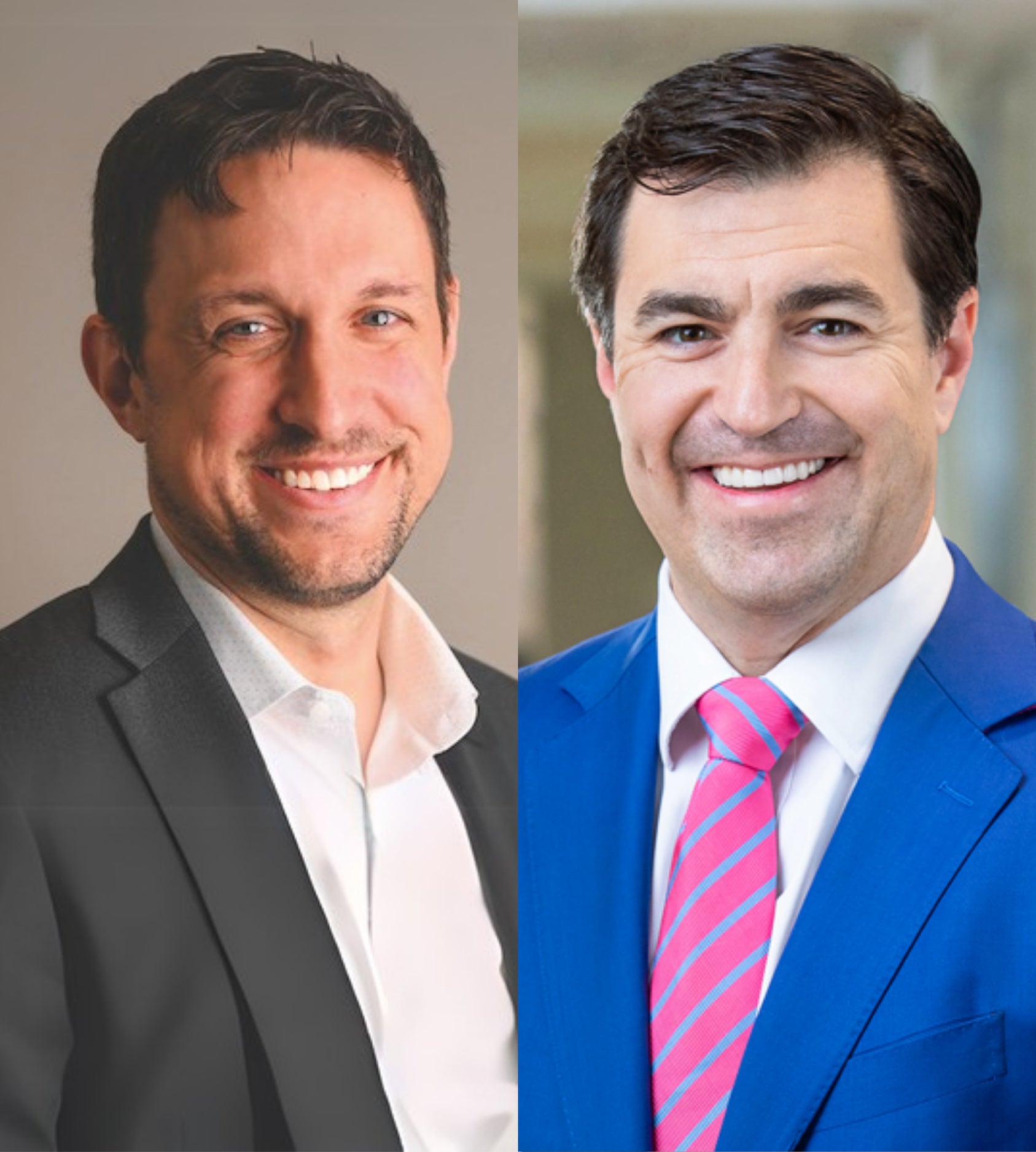Values in Action: How the Medal of Honor Center is Redefining Leadership Development


The National Medal of Honor Center for Leadership is transforming how we understand and teach values-based leadership. Based on the core principles exemplified by Medal of Honor recipients—courage, integrity, commitment, sacrifice, citizenship, and patriotism—the Center creates leadership programs that apply these timeless values to today’s complex challenges.
The Center offers multiple pathways for leadership development: online courses for independent learners, partnership programs with academic and institutional organizations, year-long fellowships for different career stages, and customized professional development for organizationsacross sectors.
In this Behind the Impact interview, we speak with Joe Waring, a Liberty Fellow and member of the Aspen Global Leadership Network who serves on the Center’s board, and Dr. Justin Habash, the Center’s Senior Vice President of Leadership Programs and Chief Learning Officer.
Together, they share insights on how Medal of Honor values translate to everyday leadership decisions, the power of moral courage, and why this approach to leadership development is especially relevant in today’s rapidly changing world.
Joe: As a nation, America is blessed with tremendous natural resources, fertile lands, and a framework for economic opportunity. However, as far as I am aware, we have never had an overabundance of leadership.
Each generation has to find its own way to deal with adversity and hopefully use those experiences to push forward and progress. The values of the Medal of Honor represent the very best of our country and who each one of us has the power to be.
Justin: Many of these values are synonymous with good leadership in general but they are particularly important in today’s environment because of the pace of disruptions many sectors are experiencing.
Thinking about leadership through the lens of values is incredibly important in the age of AI where we are creating new products and systems all the time that are charged with activities that were previously only the purview of humans: making decisions, life-or-death recommendations, or creating new things. Increasingly complex leadership scenarios require those that can lead courageously through so much uncertainty without sacrificing their integrity or commitment to those they lead.
Justin: One of the most profound truths I’ve learned is that you don’t really discover what your values are until they cost you something. It’s easy to say we value integrity when telling the truth benefits us. The real test comes when honesty might cost us a deal, a relationship, or an opportunity.
I’ve seen multinational healthcare companies elect not to put a batch of product out that met all external quality guidelines but failed internal processes, effectively costing them millions, or non-profit executives turning down generous donations to their organizations because of the potential conflicts with their mission. In each of these cases, the leaders were focused on sticking to their principles to achieve long-term success. And many of them will tell you that when your values are crystal clear, these decisions almost make themselves. That’s not to say they make tough decisions easy, but often they can help make them clear.
Joe: From my experience, these values are recurrent in the cultural fabric of high performing teams.Several apply directly to how great businesses manage conflict in controlled ways to find solutions, build trust internally and externally to drive commitment and excellence, and find ways to encourage individuals to promote the best interests of the team over their own needs. These are elements that are difficult to achieve and maintain but critical to winning.
Joe: For me, moral courage is the self-awareness of one’s core principles and the strength to take actions to stay true to those principles. It is the grit to make tough decisions for the good of a team or organization, even when its unpopular, risky, or counter to incentives.
Many problems in life fester because of indifference coupled with a lack of a sense of urgency. It is perpetuated through the feeling that someone else will step up or fix the problem. Moral courage means taking accountability and creating an environment where others might find their own courage.
Justin: I love this question and it’s actually the exact starting point for our course on Courage and Character. The short answer is that courage is the virtue with respect to confidence and fear. It turns out, though, that we are afraid of a lot of things and oftentimes we let that fear drive our decision-making, not just in business or professional settings, but in our personal lives as well. We’re afraid of rejection or other people’s opinions or conflict with those around us. These fears often keep leaders from having difficult conversations or making tough decisions but our inability to confront these fears also leads many to make choices they later regret.
Many people at the end of their lives, in fact, lament not being more courageous throughout their journey. So, I think courage is fundamental not only to strong leadership but also to living the good life, and maybe the best news is: it’s a virtue or character skill that can be developed through practice.
Justin: My first professional experience was as a rifle platoon leader in the 101st Airborne Division, serving southwest Baghdad from 2005-2006. It was a brutal deployment and I witnessed firsthand both the savagery and brotherhood of combat as we fought to secure incredibly difficult terrain and lost many good men doing it. Those experiences shaped not only the kind of leader I became but the kind of educator I’ve been for the last couple decades teaching ethics and leadership at several different universities.
When offered the opportunity to help develop a values-based leadership education program based on Medal of Honor values, it felt like it brought together three different parts of my professional experience: a veteran with a deep respect for what the Medal represents, an administrator in designing and delivering educational programs, and my background teaching ethics and leadership.
Joe: My father is a Navy veteran and I grew up admiring the military and those who give precious years of their life to serve something greater than themselves. Without realizing it, my father’s path directly shaped my own North Star. I did not serve in our Armed Forces but always felt a desire to help.
Through business, I was afforded the great privilege to lead an advocacy group that represents disabled veterans across the United States. My experiences as a Liberty Fellow and member of the Aspen Global Leadership Network gave me the chance to leverage my position as a business leader to raise the profile of nonprofits like the National Medal of Honor Center for Leadership.
Their mission spoke directly to my soul and getting involved coalesced my own random walks through life and business into a crystallized way to give back and serve. I credit the Liberty Fellowship for helping me recognize when my moment came.
Joe: I learn more about leadership each time I have the privilege of hearing a Recipient speak about his own experience. The lesson that has resonated most is being prepared for when the moment to lead comes and having trust in not only one’s training but those around you that everyone will do their job.
It is the commitment to make sure that you are doing your role to the best of your ability so you do not let down a teammate who is trusting you. It is putting the interests of your team ahead of your own.
Justin: I think leadership and the Medal of Honor itself have a lot in common: they are, at the same time, a privilege and a burden. David Bellavia powerfully describes the burden in several scenes in his book Remember the Ramrods and I’ve heard a number of other Recipients weave this idea into their comments during some of our panel programs.
Medal of Honor Recipients become the face of something much bigger than themselves, with tremendous responsibility. They become public figures, their lives and choice possibility scrutinized and on display for others. I know many of them feel a strong sense of obligation both to those they have served with and those who have come before them.
I approach leadership as they approach the Medal–as a steward carrying a responsibility for as long as I am able.
Medal of Honor Recipients Ryan Pitts and Barney Barnum share leadership lessons at a Medal of Honor Leadership Center gathering in Chicago May 2025.
Joe: There are a significant number of leadership development programs in the country and many are great. From what I can tell, most try to focus on what specifically to do and how to generate sales or be a better practitioner of some sort of industry. But we have a serious deficiency for programs that focus on what are the ethical and character driven attributes of leaders and how to hone those traits. What the Center for Leadership is doing is immensely powerful and the programs offer training, lessons, and immersive storytelling that will unlock significant human potential.
Justin: First, we inspire through the power of narratives and storytelling. By sharing compelling stories of Medal of Honor recipients and others who have risen to meet extraordinary challenges, we ignite the spark of leadership potential. These narratives aren’t just inspiring—they make leadership tangible and demonstrate that extraordinary leadership often emerges from ordinary people in extraordinary circumstances.
Second, we ground our approach in values that serve as the foundation for character development. The Medal of Honor values—courage, sacrifice, commitment, integrity, citizenship, and patriotism—are not abstract concepts but practical character skills that can be cultivated deliberately. What makes these values particularly powerful is their universal applicability across different contexts in life. We explicitly teach how to translate these values-based character skills into everyday scenarios—whether in personal relationships, professional environments, community service, or during times of crisis.
Third, we develop these character skills through deliberate practice in challenging situations. True leadership growth happens at the edge of comfort, where individuals must apply their values while being stretched. By creating controlled but demanding scenarios, participants develop resilience and adaptability, and it’s a lot more engaging than endless lecture with powerpoint!
Joe: I think there is almost a hardwired belief that character is set in stone and cannot be updated or developed. Following that thinking, there is little point investing in improving one’s character. But that is completely not the case. Character is shaped by experience and situations. It can be learned and therefore it can be transformed.
Justin: Usually about halfway through the term in my MBA classes, astudent (already very accomplished professionals from all over the world) finally gets the courage to ask me some version of this question: why should we be values-based leaders?
The implication—and it stretches back at least to Machiavelli but is at the heart of every business ethics or leadership class—is that it’s easier or more effective to seem to have these values rather than actually live them. So, I think the answer is twofold:: First, overcoming our natural but flawed misconception that being a values-based leader somehow puts you, or your organization, at a competitive disadvantage. Second, is that the cultivation of these values-as-character-skills takes time and persistence to really develop into a consistent leadership practice. From fast food to social media, we’ve become so accustomed to getting quick results and that’s just not how meaningful, life-changing behavioral skills are developed.
Justin: I think of our impact in terms of a ripple effect, an ever-expanding sphere of influence helping more and more people meet their own leadership moments. I know our impact is going to be substantial on so many different individuals and organizations throughout the country and even beyond. Five years from now I expect our learners to be deeply involved in the practice of leadership throughout their organizations and communities, helping others to grow and develop by serving as inspiring examples that others can follow.
About the Liberty Fellowship: The Liberty Fellowship is the only state-based Fellowship program of its kind in the United States. The Fellowship activates individual leaders through a deeper understanding of a just, free and equitable society; serves as a convener for bringing together diverse perspectives to advance civil discourse; and provides infrastructure for taking action. Through the Fellowship’s affiliation with Aspen Institute, Liberty Fellows also become members of the Aspen Global Leadership Network. There are 350 Liberty Fellows working individually and collaboratively across South Carolina. Learn more at libertyfellowshipsc.org and agln.aspeninstitute.org.
About the Aspen Global Leadership Network: The Aspen Global Leadership Network (AGLN) is a dynamic, worldwide community of more than 4,000 entrepreneurial leaders from over 60 countries. Spanning business, government, and the nonprofit sector, these leaders share a commitment to enlightened leadership and the drive to tackle the most pressing challenges of our times. Through transformative fellowships and gatherings like the Resnick Aspen Action Forum, AGLN Fellows have the unique opportunity to connect, collaborate, and challenge each other to grow and make a meaningful impact.

The federal government is projected to lose just 4 cents for every $1 it lends to students in 2026, down...

High-net-worth clients and advisors are both facing the same challenge: how to better connect with the next generation. In fact,...

Carrying credit card balances over time can make it harder to manage everyday expenses. Interest charges may continue to add...